Coaching Quote of the Day 14th April 2015
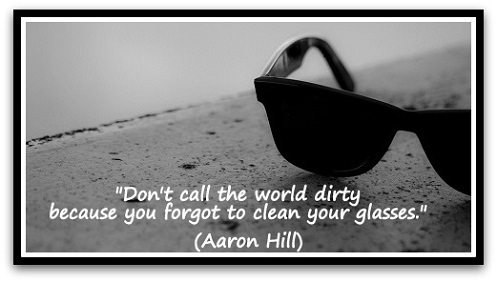
“Don’t call the world dirty because you forgot to clean your glasses.”
(Aaron Hill)

“Don’t call the world dirty because you forgot to clean your glasses.”
(Aaron Hill)
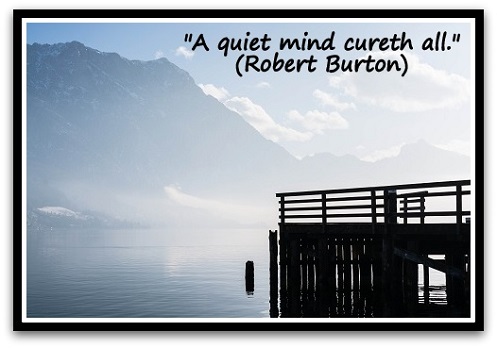
“A quiet mind cureth all.”
(Robert Burton)
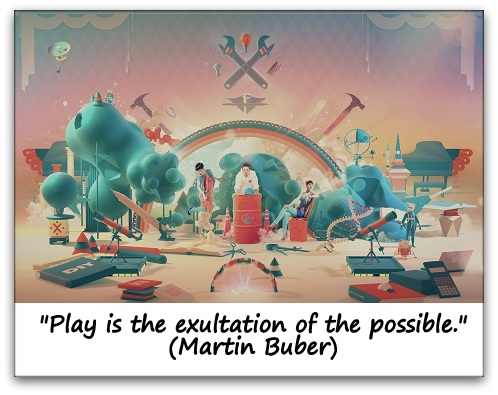
“Play is the exultation of the possible.”
(Martin Buber)
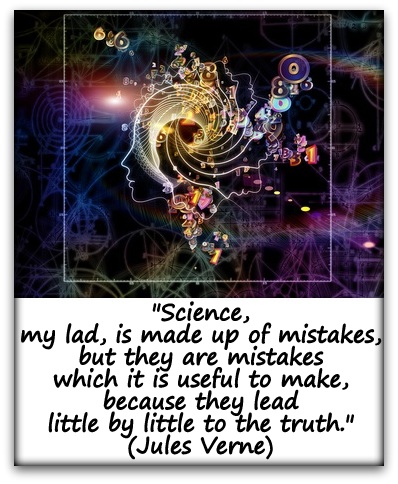
“Science, my lad, is made up of mistakes, but they are mistakes which it is useful to make, because they lead little by little to the truth.”
(Jules Verne)
In this weeks guest post coach and mentor Moisés Pérez Cosgaya shares some of his expertise:

The comfort zone is a behavioral state within which a person operates in a condition of “neutral anxiety”, using a range of behaviors to achieve a consistent level of performance without a sense of risk
(White 2009)
The comfort zone is not limiting per se, in fact changes that lead to growth begin by recognizing comfort zones.
The comfort zone is a safe area, which does not mean it is necessarily a happy zone.
It is an area that is well known, in which the risks are perfectly detected. Behaviors, attitudes, skills and habits that give us certainty about the results and consequences of what we do are also understood.
Therefore this allows us to also identify what we have no certainty about – what causes us uncertainty and therefore can be avoided.
In the comfort zone we know what to say and do to ensure acceptance of those around us, how to behave in order to avoid conflicts and how to solve them, are also in that known area.
Example 1
When you are a student you know exactly under what conditions your parents will accept your low grades. You are also aware about what grade they consider low. Knowing this information allows the potential to plan to take exams and get the minimum score needed to save trouble at home.
Example 2
In your job knowing your superiors priorities can influence everything you do. Not only the result of the work assigned to you, but also all forms of your interactions with customers. It allows you to conduct your work to avoid misunderstandings. Equally you also know how to react to your subordinates and your peers in situations that cause conflict. Taking this into account can provide the words and actions you should take to resolve these conflicts.
Example 3
A person with an addiction knows what to do to physically get their drug of choice in a way that fits their need. What he does may be seen as good or bad, he’ll know what to say; to whom and in what time, to get the “fix” he needs. Whether what they say is true or not, they know what places to avoid because they represent a hazard, regardless of what “risk” means in the context of his particular situation.
That is, he is certain about what to do, what to say and what habits are useful to get what he needs; clearly he is not a happy person, but he is a person living in certainty.
The comfort zone can be comfortable just as soon as an event occurs. What happenes if you have a dream or a situation that causes uncertainty about what actions to take, the consequences of the actions and / or results and consequences of our actions is presented? You’re limited by the comfort zone when you need to leave the certainty !.
Example 1b
Maybe when you leave primary school and enter high school, the grade you get as a minimum qualification to avoid problems at home is no longer satisfactory to your parents. Perhaps it’s no longer just a motivation about only avoiding scolding and rebukes at home, but rather now it is to achieve your own dream.
In this case it is clear that you need to change your old habits, customs, actions. You can begin a cycle of trial-and-error to test and find the habits, customs and actions that will provide more certainty about the results and consequences that you want to gain.
Example 2b
At your job when you are promoted to higher positions you will find that your superiors have different priorities about what you do. Your decisions have more impact and therefore you have to make changes to: your own priorities as well as your perspective about your superiors, subordinates, peers and about the “big picture” for the company.
Example 3b
The arrival of a new member to the family brings uncertainty as to what needs changing, in order to adapt to the new presence. If you are that new family member yourself, it will put you through a situation that causes uncertainty because you’ll encounter unfamiliar customs.
Leaving a comfort zone always raises uncertainty and to overcome it is necessary to build a new comfort zone that you will then know well. A new confort zone that provides you with safety, comfort and certainty. It’s a comfort zone where you can be for a while until some external factor appears to push you to leave to create another new one.
If your comfort zone gives you happiness then enjoy it, get to know that zone.
If you find it just gives you certainty, it has served its purpose which was to:
As you can see this is a cycle consisting of: growth -> enjoyment->inventive, and is part of life. Live it! When you find that you are in a comfort zone which is not enough, Build a new comfort zone!
Moisés Pérez Cosgaya
About Moisés Pérez Cosgaya
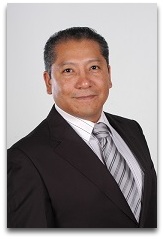 Coach and Mentor Moisés Pérez Cosgaya is a certified ontological coach with the World Coaching Corporation (WCC). Moises adapts, teaches and conducts coaching and mentoring processes to his customers who are professionals from various sectors like IT, Network Marketing, Education, Beauty, Fashion and Media; he helps them find theirselves mechanisms and tools to overcome the barriers that separate theirselves personal and professional goals.
Coach and Mentor Moisés Pérez Cosgaya is a certified ontological coach with the World Coaching Corporation (WCC). Moises adapts, teaches and conducts coaching and mentoring processes to his customers who are professionals from various sectors like IT, Network Marketing, Education, Beauty, Fashion and Media; he helps them find theirselves mechanisms and tools to overcome the barriers that separate theirselves personal and professional goals.
Moises supports its customers to discover theirselves internal processes and systems to improve day by day.
He considers his slogan “introducing you to the best version of you” is a promise to his customers he must fulfill
Moises operates from Mexico City, he has customers in Central America and South America. Serves its customers in person and by video conference
Moises writes weekly in his website http://mpcosgaya.com

“Quietness is the beginning of virtue. To be silent is to be beautiful. Stars do not make a noise.”
(James Stephens)

Each Thursday I share the most RT’d quote(s) from the blogs twitter account over the previous week. Last week the most RT’d tweet was:
“Sometimes you face difficulties not because you’re doing something wrong, but because you’re doing something right.”
(Joel Osteen)
Tweeted on 1st April
There was a tie for the next highest amount of RT’s between the quotes
“If you really want to do something, you’ll find a way. If you don’t, you’ll find an excuse.”
(Jim Rohn)
Tweeted on 1st April
and
“Though no one can go back and make a brand new start, anyone can start from now and make a brand new ending.”
(Carl Bard)
Tweeted on 2nd April

Many thanks to everyone who shared the quotes above and the other quotes from last week. I know that there are various aspects that can influence if a quote attracts your attention – if you saw the tweet, personal style, if it speaks to something happening in your life at that moment etc.

(For those of you as geeky as I am and wondering what tool I’m using to measure individual RT’s this week I’ve been playing with www.twitonomy.com)

“Home is the nicest word there is.”
(Laura Ingalls Wilder)